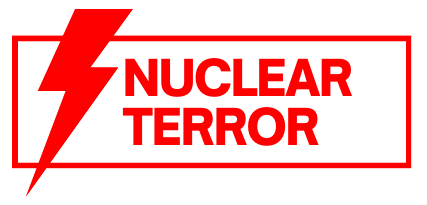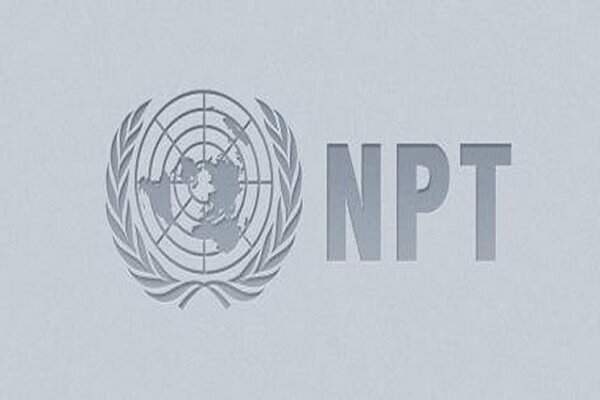Like a puzzle missing a crucial piece, the question of whether Israel is part of the NPT has puzzled many observers for years. While the NPT aims to prevent the proliferation of nuclear weapons, Israel’s stance on the treaty remains shrouded in ambiguity. The lack of clarity surrounding Israel’s nuclear program and its relationship with the NPT raises intriguing questions: Why has Israel neither confirmed nor denied possessing nuclear weapons? What implications does this opacity have on regional and global security? In this article, we will navigate through the complexities surrounding Israel’s nuclear program and its connection to the NPT, uncovering a fascinating tale of secrecy and international diplomacy.
Israel’s Nuclear Program
Israel’s nuclear program, which has been shrouded in secrecy and speculation since its inception in the 1960s, continues to be a topic of international interest and scrutiny. One key aspect of Israel’s nuclear program is its nuclear opacity policy. This policy means that Israel neither confirms nor denies the existence of its nuclear weapons program, adding to the intrigue surrounding it. However, despite the lack of official confirmation, it is widely believed that Israel possesses a substantial nuclear arsenal.
Israel’s nuclear program is known for its technologically sophisticated systems. The country has developed advanced ballistic missile capabilities, including land-based missiles such as the Jericho-I and Jericho-II, with ranges of 500km and 1,500km respectively. Additionally, Israel has sea-based cruise missiles and submarines, such as the Dolphin I-class and Dolphin II-class submarines, capable of launching nuclear weapons. The country also maintains a fleet of F-16 Fighting Falcons and F-15 Eagles, which are capable of delivering nuclear payloads.
It is important to note that Israel is a non-signatory to the Non-Proliferation Treaty (NPT). This means that the country is not bound by the treaty’s provisions and is not subject to inspections by the International Atomic Energy Agency (IAEA). Israel’s non-signatory status further contributes to the uncertainty surrounding its nuclear program.
Non-Proliferation Treaty (NPT)
The focus now turns to the Non-Proliferation Treaty (NPT), which plays a crucial role in global efforts to limit the spread of nuclear weapons. The NPT has three pillars: non-proliferation, disarmament, and peaceful use of nuclear energy. Israel, however, has never signed the NPT, raising implications for global non-proliferation efforts.
Israel’s stance on the NPT has been a subject of debate and speculation. While Israel maintains a policy of nuclear opacity, neither confirming nor denying the possession of nuclear weapons, its refusal to sign the NPT has raised concerns among the international community. This raises questions about Israel’s commitment to global non-proliferation efforts and its willingness to engage in nuclear disarmament progress.
Israel’s decision not to join the NPT is rooted in regional security concerns. As the only nuclear-armed state in the Middle East, Israel argues that its nuclear capabilities serve as a deterrent against potential threats. However, this stance has been met with criticism, as some argue that Israel’s nuclear arsenal undermines regional stability and fuels an arms race in the region.
Israel’s Nuclear Arsenal
Israel possesses a significant nuclear arsenal that is a subject of international debate and speculation. The existence of Israel’s nuclear weapons program is not officially acknowledged by the Israeli government, and it maintains a policy of nuclear opacity. However, it is widely believed that Israel possesses approximately 90 nuclear weapons, making it one of the world’s nuclear-armed states.
Israel’s nuclear arsenal serves as a form of nuclear deterrence, aiming to ensure its national security and protect its regional interests. It is argued that Israel’s possession of nuclear weapons acts as a deterrent against potential adversaries and helps maintain strategic stability in the region. Proponents of Israel’s nuclear program argue that it provides a crucial defense against the threats it faces, including nuclear proliferation in the Middle East and regional security challenges.
However, Israel’s nuclear arsenal also raises concerns regarding nuclear proliferation, nuclear disarmament, and regional security. Critics argue that Israel’s undeclared nuclear weapons undermine efforts for a nuclear-free Middle East and hinder nuclear disarmament initiatives. They also raise concerns about the potential for an arms race in the region and the risk of nuclear escalation in the event of a conflict.
International Agreements and Treaties
As we shift our focus to the subtopic of ‘International Agreements and Treaties’, it is important to examine the global implications surrounding Israel’s nuclear arsenal and its potential impact on non-proliferation efforts and regional security dynamics. Israel, as a non-NPT signatory, is not bound by the obligations and commitments of the treaty. This raises concerns among NPT signatories and the international community regarding nuclear disarmament and non-proliferation efforts.
The lack of Israel’s participation in the NPT limits the effectiveness of global efforts towards nuclear disarmament. The treaty aims to prevent the spread of nuclear weapons and promote peaceful uses of nuclear energy. By not being a part of the NPT, Israel is not obligated to cooperate in non-proliferation efforts or contribute to international cooperation in the peaceful use of nuclear energy.
Furthermore, Israel’s nuclear opacity policy, where it neither confirms nor denies the possession of nuclear weapons, adds to the complexity of the situation. This policy creates uncertainty and challenges transparency in international relations, hindering efforts towards achieving a world free of nuclear weapons.
Military Fissile Material Stockpiles
With regards to military fissile material stockpiles, it is essential to examine the quantity and composition of Israel’s nuclear arsenal. The Israeli stockpile is estimated to consist of approximately 0.98 tons of weapons-grade plutonium and 0.3 tons of highly enriched uranium. However, due to Israel’s policy of nuclear opacity, the exact size and composition of its stockpile remain uncertain. Israel has never officially confirmed the existence of its nuclear program or signed the Non-Proliferation Treaty (NPT). This lack of transparency raises concerns about the potential proliferation risks associated with Israel’s nuclear weapons. The international community has called for greater transparency and inspection requirements for Israel’s nuclear facilities to ensure compliance with disarmament efforts. Additionally, the concept of a Middle East Zone Free of Weapons of Mass Destruction (WMD) has been endorsed by all NPT state parties, and Arab states have pushed for tangible steps towards this goal. Addressing Israel’s military fissile material stockpiles is crucial to promoting global non-proliferation efforts and reducing the risks associated with nuclear weapons.
Israel’s Nuclear Capabilities
Israel’s nuclear capabilities have long been a subject of speculation and concern within the international community. When it comes to Israeli nuclear facilities, the country has adopted a nuclear opacity policy, neither confirming nor denying the possession of nuclear weapons. However, through technological advancements in its nuclear program, Israel has developed a formidable arsenal and delivery systems.
Israeli nuclear weapons delivery systems primarily consist of aircraft and missiles. The F-16 Fighting Falcon and F-15 Eagle are capable of delivering nuclear weapons, while the F-35A Lightnings have been acquired to replace older F-16s. Additionally, Israel possesses land-based missiles such as the Jericho-III missile, which has a range of 4,800km to 6,500km. These missiles, along with sea-based cruise missiles/submarines like the Dolphin I-class and Dolphin II-class submarines, contribute to Israel’s nuclear deterrence capabilities.
In terms of defense, Israel has also invested in ballistic missile defense systems to protect its territory. These systems include the Iron Dome, David’s Sling, and Arrow systems, which provide a multi-layered defense against incoming missiles.
Israel’s Nuclear Developments
Through ongoing advancements in its nuclear program, Israel has continued to enhance its nuclear capabilities and develop new technologies to bolster its deterrence capabilities. Israel’s nuclear facilities have played a significant role in these developments, allowing for the production and maintenance of its nuclear arsenal. The country’s nuclear opacity policy, which neither confirms nor denies the possession of nuclear weapons, adds an additional layer of complexity to its nuclear program.
Israel has invested in the development of ballistic missile systems, such as the Jericho-III missile with a range of 4,800km to 6,500km, and has deployed technologically sophisticated delivery systems, including F-16 Falcons, F-15 Eagles, and Dolphin II-class submarines capable of launching cruise missiles. These advancements provide Israel with a diverse range of options for potential nuclear strikes, ensuring its deterrence capabilities.
Despite its nuclear developments, Israel has also engaged in disarmament efforts, signing the Comprehensive Nuclear-Test-Ban Treaty (CTBT) and the Partial Test Ban Treaty (PTBT). Furthermore, Israel has been involved in international discussions regarding the establishment of a Middle East Weapons of Mass Destruction (WMD)-free zone, demonstrating its commitment to regional non-proliferation efforts.


